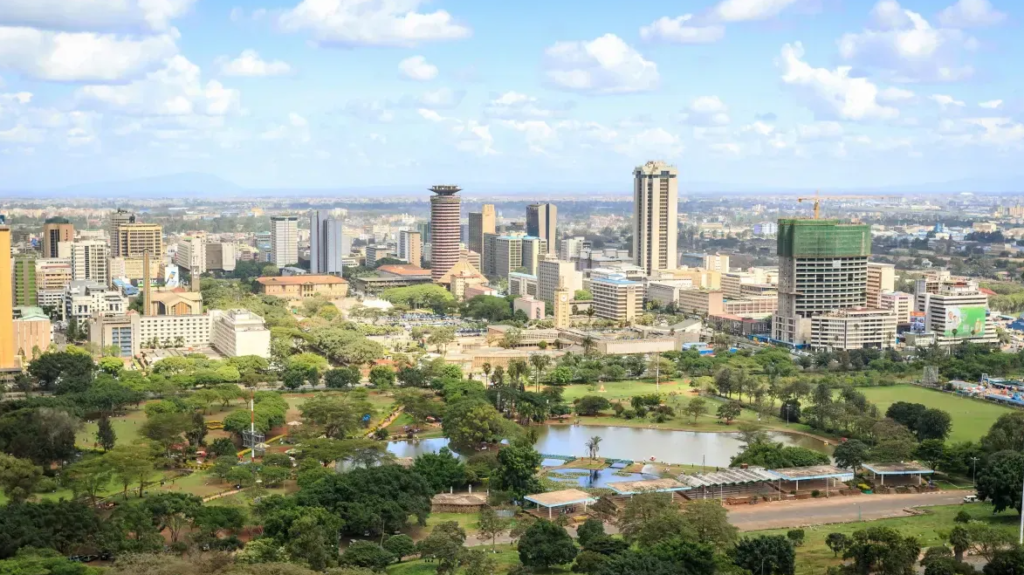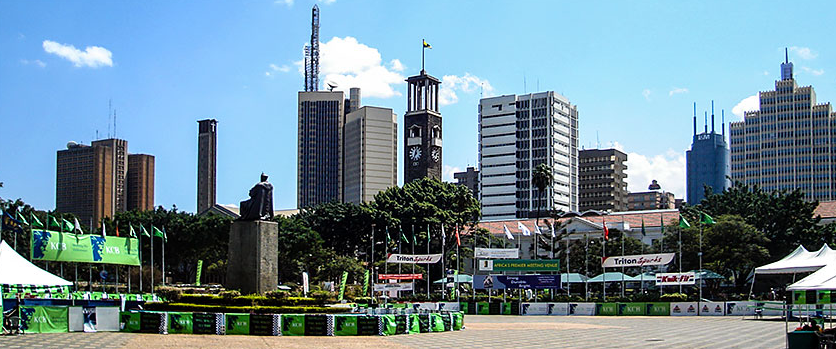Nairobi, the bustling capital of Kenya, is a destination that offers a unique blend of modern urban life and rich cultural experiences. To ensure a smooth and enjoyable trip, it’s crucial to be well-prepared with practical information. This guide provides valuable details on currency and payments, weather and clothing, and communication in Nairobi, helping tourists navigate the city with ease.

1. Currency and Payments
Kenyan Shilling (KES)
The official currency in Nairobi is the Kenyan Shilling (KES). It’s advisable to familiarize yourself with the current exchange rates before your trip. As of now, 1 USD is approximately 110 KES, but rates can fluctuate.
Currency Exchange
Currency exchange services are widely available in Nairobi. You can exchange money at the airport, banks, forex bureaus, and some hotels. Forex bureaus often offer better rates than banks, but it’s wise to compare rates before making a transaction. Major currencies like USD, EUR, and GBP are easily exchanged.
ATMs
ATMs are plentiful in Nairobi and can be found in most shopping malls, major hotels, and busy areas. They typically accept international cards like Visa, MasterCard, and Cirrus. It’s recommended to withdraw money during daylight hours and in secure locations. Inform your bank of your travel plans to avoid any issues with card usage.
Credit Card Usage
Credit and debit cards are widely accepted in Nairobi, particularly in hotels, restaurants, and larger shops. Visa and MasterCard are the most commonly accepted cards, while American Express is less widely used. However, it’s always good to carry some cash for smaller vendors, markets, and areas where card facilities may not be available.
Tipping Practices
Tipping is appreciated but not mandatory in Nairobi. Here are some general guidelines:
- Restaurants: A tip of 10-15% of the bill is customary.
- Hotels: Tip porters around 100-200 KES per bag, and housekeeping 100-200 KES per day.
- Taxis: It’s common to round up the fare to the nearest convenient amount.
- Tour Guides: For a full-day tour, consider tipping around 1,000-1,500 KES, and 500-1,000 KES for a half-day tour.
2. Weather and Clothing
Weather Conditions
Nairobi enjoys a moderate climate due to its high altitude (approximately 1,795 meters or 5,889 feet above sea level). The weather is generally mild, but it varies slightly with the seasons:
- Dry Season (June to September): This is the coolest period, with daytime temperatures averaging around 20-25°C (68-77°F) and cooler nights.
- Short Rains (October to December): Expect brief, heavy showers mainly in the late afternoon or evening, with temperatures ranging from 20-26°C (68-79°F).
- Dry Season (January to February): Warm and sunny, with temperatures averaging 25-28°C (77-82°F).
- Long Rains (March to May): The wettest season, with frequent and heavy rain, especially in the afternoons and evenings. Temperatures range from 18-24°C (64-75°F).
Clothing Suggestions
Packing appropriately for Nairobi’s weather will ensure comfort during your trip:
- Dry Season: Light, breathable clothing for the day and a jacket or sweater for the cooler evenings.
- Rainy Season: Waterproof jacket or raincoat, umbrella, and quick-drying clothing. Comfortable, closed-toe shoes are recommended to navigate wet conditions.
- General: Nairobi is quite cosmopolitan, so casual to smart-casual attire is suitable. If you plan to visit upscale restaurants or events, pack some dressier options. For safaris and outdoor activities, neutral-colored clothing, a hat, and sturdy walking shoes are essential.
3. Communication
SIM Cards and Mobile Networks
Staying connected in Nairobi is straightforward with several reliable mobile network providers, including Safaricom, Airtel, and Telkom Kenya. Here’s how to get started:
- Purchasing a SIM Card: You can buy a local SIM card at the airport, mobile network shops, or authorized dealers. Ensure your phone is unlocked to use a local SIM. Bring your passport for registration as per Kenyan regulations.
- Data Plans: Choose from a variety of prepaid data plans based on your usage needs. Safaricom generally offers the best coverage and data speeds, followed by Airtel and Telkom.
Internet Access
Nairobi is well-connected, with various options for internet access:
- Wi-Fi: Free Wi-Fi is available in many hotels, cafes, restaurants, and shopping malls. However, the speed and reliability can vary.
- Mobile Data: Using mobile data is often the most reliable way to stay connected, especially when traveling around the city. Data bundles from providers like Safaricom can be purchased easily and offer good coverage and speeds.
Local Calling Codes
When making local calls in Nairobi:
- Dialing Within Kenya: Use the local area code for Nairobi (020) followed by the phone number. For mobile numbers, dial the full 10-digit number starting with the provider’s prefix (e.g., 07XX for Safaricom).
- International Calls: To call Nairobi from abroad, dial your country’s international exit code, followed by Kenya’s country code (254), and then the local area code or mobile number without the initial 0 (e.g., +254 20 XXX XXXX for landlines or +254 7XX XXX XXX for mobiles).
Conclusion
Equipping yourself with practical information on currency and payments, weather and clothing, and communication will significantly enhance your experience in Nairobi. By understanding local currency practices, preparing for the city’s weather, and ensuring you stay connected, you can focus on enjoying all that Nairobi has to offer. Whether you’re exploring vibrant markets, embarking on a safari, or savoring local cuisine, this guide ensures you’re well-prepared for an unforgettable adventure in Kenya’s dynamic capital.
We also recommend: Post-Trip Needs: Reviews, Feedback, and Souvenirs for Your Nairobi Adventure
Previous article: Navigating Your Trip in Nairobi: A Comprehensive Guide for Tourists










Leave a Reply